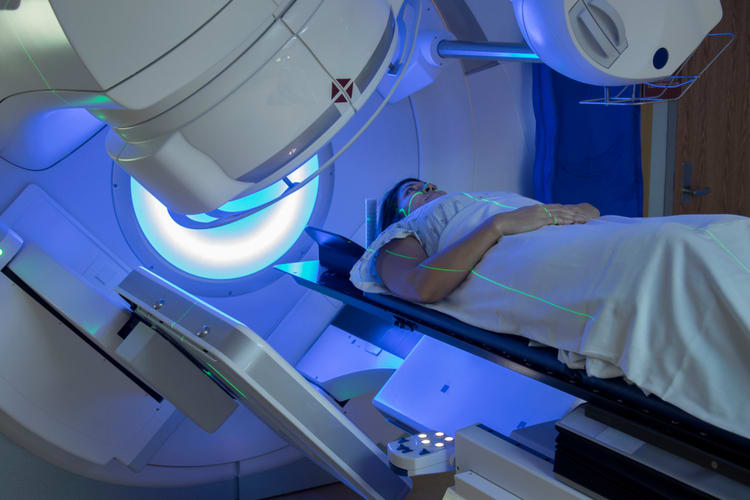Early Warning Signs Of Lung Cancer: What to Look For
According to the American Cancer Society, lung cancer kills more Americans than any other type of cancer. Lung Cancer is the second most prevalent cancer in the United States, second only to skin cancer. But doctors typically only diagnose lung cancer after it has reached an advanced stage. Some people have early indications of lung cancer, that if ignored may limit treatment options. It’s important to know what early-stage lung cancer looks like – What are the hints? What are the signs? What are the symptoms? By being educated and aware of these indications, you may afford yourself precious time to take early and effective action.
-2.jpeg) You’ll find throughout this article links to many lung cancer resources. We’ll provide details about this deadly disease and how you may be able to catch it early on. If you are worried that you might have early stage lung cancer, the information in this article will can help you to convey your concerns to your doctor so they can take early, and possibly critical action. If lung cancer is diagnosed early, it may allow you multiple treatment options including chemotherapy, surgery, and non-traditional methods.
You’ll find throughout this article links to many lung cancer resources. We’ll provide details about this deadly disease and how you may be able to catch it early on. If you are worried that you might have early stage lung cancer, the information in this article will can help you to convey your concerns to your doctor so they can take early, and possibly critical action. If lung cancer is diagnosed early, it may allow you multiple treatment options including chemotherapy, surgery, and non-traditional methods.
Early Lung Cancer Symptoms
Lung cancer ends up being so deadly, in part, because many people do not have symptoms early in the disease. You might not even exhibit any symptoms. And if you do, the symptoms you experience can be associated with many other illnesses. To illustrate this, consider the following sample of symptoms of early stage lung cancer as identified by the American Cancer Society:
- A cough that persists and/or worsens
- Coughing up blood-tinged spit or phlegm
- Chest pain that intensifies with laughing, coughing or deep breaths
- Hoarseness
- Loss of appetite
- Weight loss with no explanation
- Shortness of breath
- Fatigue
- Weakness
- Persistent or recurring bronchitis or pneumonia
- New case of wheezing
These things happen to people all of the time. They’re often caused by relatively harmless conditions. They can also present as symptoms of serious diseases other than lung cancer. So there’s probably good reason why doctors don’t always consider lung cancer straightaway. If you’re reading this, you’re probably concerned that this all-too-common course of action can, from time to time, cost lives.
Often, it’s not until the cancer spreads from the lungs to other parts of the body that doctors take note. By the time you’re experiencing later-stage lung cancer symptoms -- ranging from bone pain to jaundice to headaches to lymph node swelling -- it might be too late to effectively treat and ultimately cure this devastating illness.
So what to do?
Be Persistent
If you are experiencing these early symptoms of lung cancer, have a frank discussion with your doctor. You’re the best judge of what you feel and what’s going on inside your body. A good doctor knows this and will not only listen to, but act on your real concerns.
If you’re 55 years of age or older and you have a history of smoking, you should have no problem getting screened. If you have a family history of lung cancer and/or have been exposed to secondhand smoke or asbestos, you should also be able to get screened, few questions asked. That said, people without risk factors get lung cancer. And no matter who you are or where you fall on the risk spectrum, you need treatment as early in the progression of lung cancer as possible to increase your chances of survival.

Treatment Options
If you get diagnosed, your doctors will assess your overall health and the stage of your lung cancer to create a treatment plan. If the disease is too far along, you might opt to merely treat the symptoms to bring comfort rather than deal with the side effects of what will ultimately be futile treatment. Again, this cold reality underscores the importance of catching the cancer early so treatment is a viable option.
According to the Mayo Clinic, doctors can perform surgery to treat lung cancer if, generally speaking, the cancer is contained to the lungs. They’ll remove the affected area and potentially deal with the lymph nodes at the same time. But, again, this is an option if you deal with the situation early. Once the cancer spreads, your odds at effective treatment greatly decrease.
Other options, depending on your unique case, include radiation, chemotherapy, targeted drug therapy, and immunotherapy. The latter two options look to isolate and kill cancer cells and activate the body’s immune response to defeat the cancer, respectively. If things have progressed too far, you’ll likely be given medication and other treatment simply to reduce pain and discomfort. This is known as palliative care.
Catch Early and Conquer
Catching lung cancer early can be a challenge. If you feel like something is wrong and suspect lung cancer, you might have to make a case to your healthcare provider in order to get tested. Armed with information and the resources on this page, you can walk into your doctor’s office and make sure he or she hears your concerns. Don’t let a pesky cough get written off as something benign when it could be the difference between life and death. Ultimately, you hold the key to your health in your own hands.
